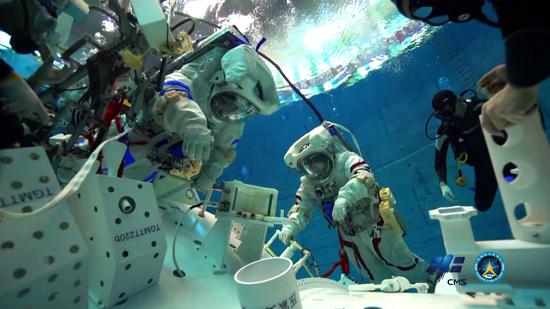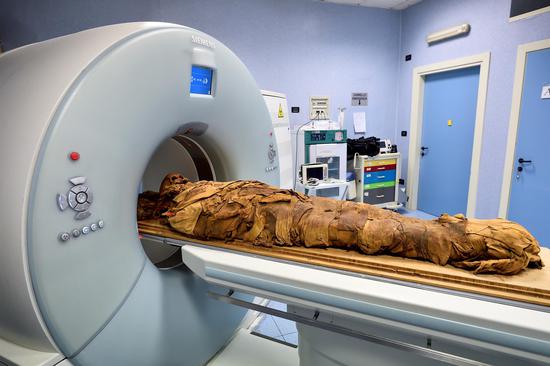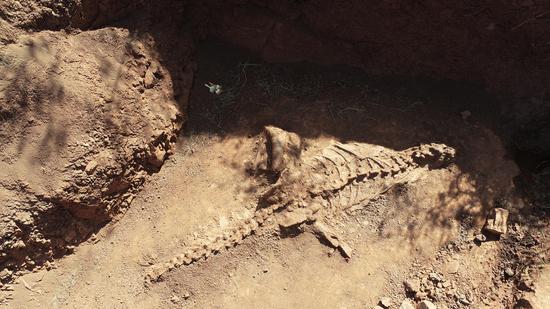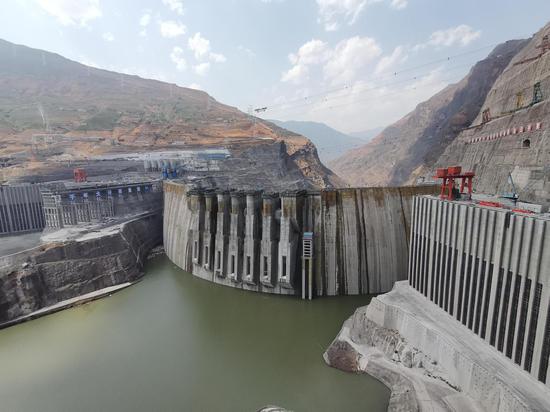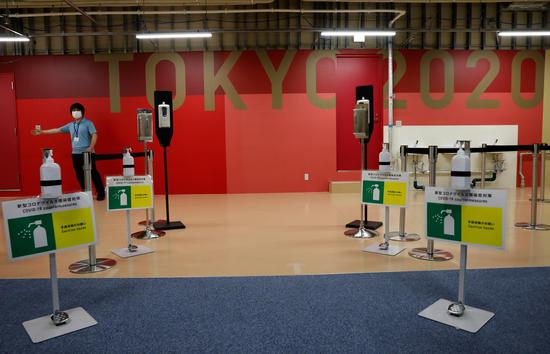U.S. President Joe Biden on Thursday reached a deal with a bipartisan group of senators on a roughly 1.2-trillion-U.S. dollar infrastructure plan.
"I'm pleased to report that a bipartisan group of senators, five Democrats, five Republicans, part of a larger group has come together and forged an agreement that will create millions of American jobs and modernize our American infrastructure," Biden said at the White House after a meeting with the senators.
"It delivers clean transportation, clear water and clean water, universal broadband, clean power infrastructure, and environmental resilience. And these areas invest two-thirds of the resources that I've proposed in my American Jobs Plan," he said.
Biden's remarks came after a bipartisan group of senators on Wednesday reached a deal on a framework for an infrastructure spending bill.
The infrastructure framework Biden endorsed includes 579 billion dollars in new spending for a total of 973 billion dollars over five years and 1.2 trillion dollars over eight years, according to the White House.
"The $1.2 trillion Bipartisan Infrastructure Framework is a critical step in implementing President Biden's Build Back Better vision," the White House said Thursday in a fact sheet.
The framework is financed through a combination of closing the tax gap, redirecting unspent emergency relief funds, targeted corporate user fees, and the macroeconomic impact of infrastructure investment, said the White House.
During talks with Senate Republicans last month, the White House had lowered the overall price tag of Biden's 2.3-trillion-dollar infrastructure plan to 1.7 trillion dollars.
Senate Republicans then offered a 928-billion-dollar infrastructure counteroffer. But the two sides failed to reach a deal and agreed to end infrastructure talks earlier this month.
Biden also said on Thursday that he will work with Congress right away on the other half of his economic agenda, the so-called American Family Plan, to finish the job on childcare, education, the caring economy, and clean energy tax cuts.
The president signaled that he would not sign the bipartisan infrastructure bill unless Democrats in Congress pass a reconciliation bill on his other social spending priorities.
"I expect that in the coming months this summer, before the fiscal year is over, that we will have voted on this bill, the infrastructure bill, as well as voted on the budget resolution. But if only one comes to me, this is the only one that comes to me, I'm not signing it. It's in tandem," Biden said.
"The bipartisan bill from the very beginning was understood, there's going to have to be the second part of it. I'm not just signing the bipartisan bill and forgetting about the rest that I proposed," said the president.
U.S. House Speaker Nancy Pelosi also said on Thursday that the House would not vote on a bipartisan infrastructure bill until the Senate passes the reconciliation bill.
It's not clear whether either bill will gather enough support to clear the House and Senate.
Some financial experts are suspicious about whether the infrastructure plan can really pay for itself. Michael A. Peterson, CEO of the Peter G. Peterson Foundation, has urged policymakers to maintain a fiscally responsible approach on infrastructure and pay for their priorities.
"While our nation has many critical infrastructure needs, we also have an unsustainable fiscal outlook. New spending should be fully paid for through legitimate and credible offsets, and without budget gimmicks," Peterson said in a statement recently.
"As it stands, we are coming off borrowing trillions to defeat the pandemic, and we remain on pace to add $13 trillion in debt over the next 10 years to cover our existing structural deficits," he said.









